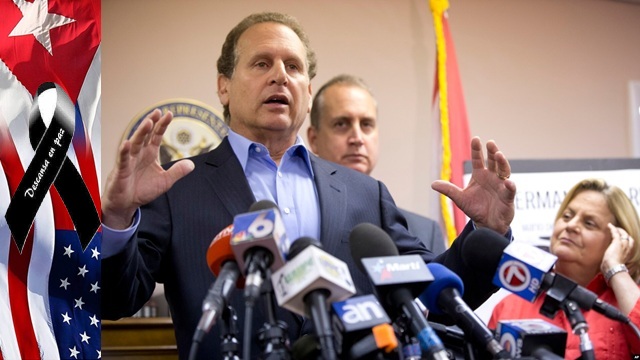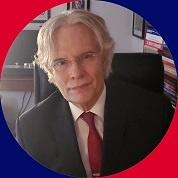 Remembering Lincoln Díaz-Balart
Remembering Lincoln Díaz-Balart
Cuba is in mourning. This has become an all too familiar reality, as so many of her sons and daughters pass away without seeing a free Cuba. On this occasion, the reason for the sorrow is the death of former Florida congressman Lincoln Díaz-Balart. At 70 years of age and in full intellectual capacity, the passing of this iconic figure will forever leave a void in Cuban politics. His 24 years in elected public service, particularly 18 of those years representing Miami districts in the U.S. House of Representatives, left a seminal legacy.
Known for his brilliant thinking and eloquence, Lincoln, as he was more commonly referred to in Miami, drew inspiration from his father, Rafael Díaz-Balart, arguably among the Cuban Republic’s most articulate and cultured group of people. Cuba’s quest for freedom and democracy and how the U.S. has responded possibly cannot point to a single person who has had greater influence in charting its course. Convinced, rightfully so, that depriving the Castro-Communist regime of funds is pivotal in stifling its ability to repress and stay in power, he masterminded the codification into law of the U.S. embargo against the island’s Marxist-Leninist dictatorship.
The Cuban Liberty and Democratic Solidarity Act, also known as the Helms-Burton Act, rescued the American embargo against communist tyranny from the whims of executive branch missteps and ambivalence. Through Lincoln’s calculated design of the Helms-Burton Act, Castroism’s ability to drape its “trafficking” (a key component of Diaz-Balart’s brilliant legal construction of the law) of stolen property met a firewall. The law that ultimately Bill Clinton signed on March 12, 1996, was Lincoln’s confection. Foreign investors until today remain wary of partnering with Cuban communism and investing in assets that were ransacked by Cuba’s Marxist dictatorship because of that law.
Lincoln’s advocacy for human rights was not just a Cuban thing. There was not a place on the globe where non-democratic governance did not find an adversary. Socialist regimes and movements in Latin America were especially targeted and challenged by Lincoln. Democratic allies found in the experienced and influential congressman a steadfast friend. People fleeing oppression will never forget this iconic Cuban American legislator who made their cause his cause.
In a free Cuba, Lincoln’s voice would have been one of much weight. Perhaps this is the saddest side of his parting. Lincoln, as is the case with the entire Díaz-Balart family, consistently lived and breathed Cuba and her struggle to be free. Democracy will reach Cuba one day. Hopefully, sooner rather than later. When that moment comes, the name of Lincoln Díaz-Balart will be sketched on the wall of patriots who did all within their human capacity to help bring that freedom about. In Lincoln’s case, his foresight helped shape that course.
© The CubanAmerican Voice. All rights reserved.
 🖋️Author Julio M. Shiling
🖋️Author Julio M. Shiling
Julio M. Shiling is a political scientist, writer, columnist, lecturer, media commentator, and director of Patria de Martí and The CubanAmerican Voice. He holds a master’s degree in Political Science from Florida International University (FIU) in Miami, Florida. He is a member of The American Political Science Association, The PEN Club (Cuban Writers in Exile Chapter) and the Academy of Cuban History in Exile.
Follow Julio on:
📚Published books 📺In the media 👨🏫 Conferences and Symposiums 🎙️Podcast The Shiling Summary

